We present a snapshot comparison of the 2019 Federal Party Platforms to SCD’s recommendations since 2015. The detailed assessment illustrates key statements that were used for the colour coding.
We are happy to see that climate change is taking important space in this election campaign. We noticed interesting pledges in almost all the parties.
We note, however, that none of the platforms alone is sufficient to get us to where we need to go to limit global temperature increase to within 1.5°C above pre-industrial levels.
Please note that we are continuously updating this assessment with new information and pledges as they are announced. We are happy to receive comments at This email address is being protected from spambots. You need JavaScript enabled to view it., recognising that there is a certain subjectivity to this assessment.

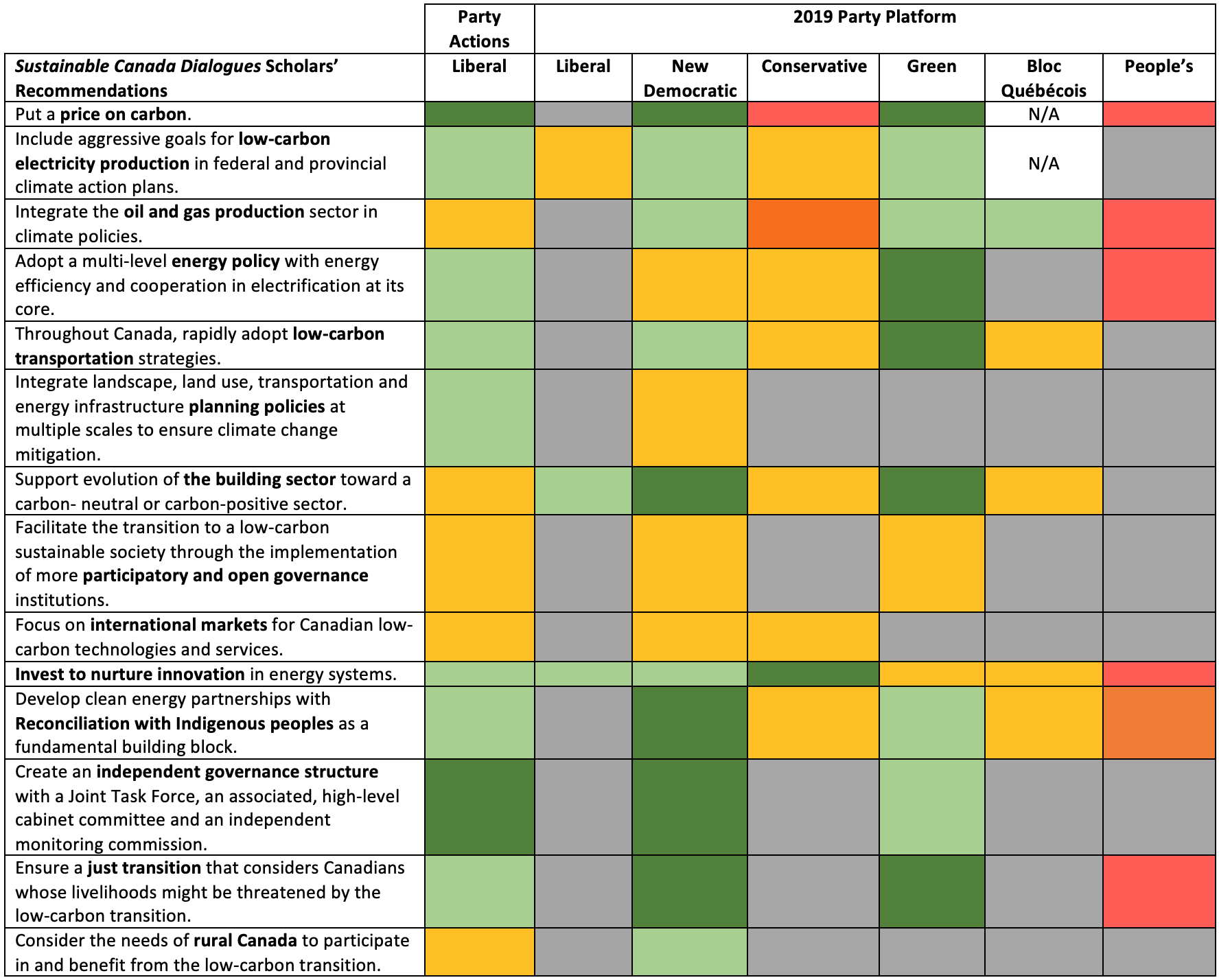
Analysis by Divya Sharma and Catherine Potvin, with input from Normand Mousseau.
Last updated: 26/09/2019
Indigenous Innovations aims to give visibility to existing, successful Indigenous climate and sustainability initiatives across Canada. It is a participatory project that seeks to forward cross-cultural learning on climate change mitigation and adaptation that makes meaningful progress towards Reconciliation in Canada, recognizing the leadership of Indigenous cultures with respect to sustainability as a key element of their relationship with the environment. Click on the logo below to find out more!
In the context of Generation Energy, Natural Resources Canada (NRCan) asked Sustainable Canada Dialogues to examine how Canada can transition its energy systems to low-carbon configurations while remaining globally competitive. The resulting report, Re-Energizing Canada: Pathways to a Low-Carbon Future, offers specific recommendations on how to make the low-carbon energy transition.
One of the scholars' key recommendations for immediate action is to carry out low-carbon energy transition experiments. These experiments should involve a diverse set of innovative social practices and technologies and should be carried out across Canada. Transition experiments are defined as deliberate interventions led by innovators (e.g., provinces, Indigenous nations, on-the-ground businesses, municipalities, non-profit organizations, universities) to instigate learning cycles from innovation design to implementation, evaluation and readjustment. As the chances of failure increase with the degree of innovation, we stress the importance of policies that support testing, while recognizing that some degree of failure is expected. Knowledge gained from both successes and failures can be put to good use.
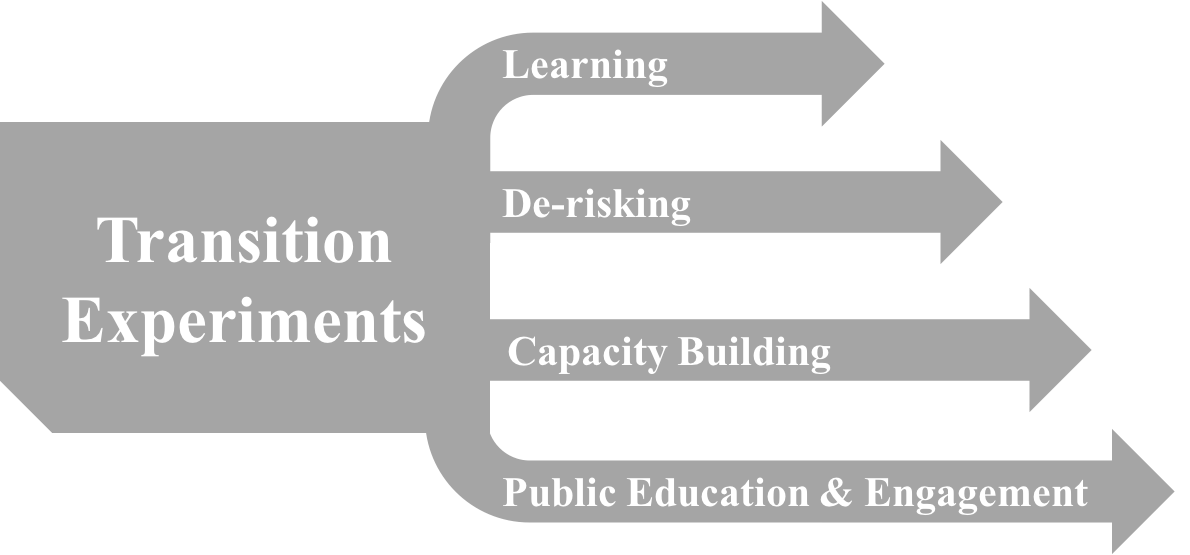
The Generation Energy Forum took place in Winnipeg from October 11–12, 2017, which concluded a summer of dialogues with Canadian citizens on their visions for Canada’s energy future.
At the Generation Energy Forum, Sustainable Canada Dialogues hosted a side event to assess cross-sector interest in establishing a network of transition experiments across Canada. The practitioners invited to participate included three Indigenous nations, six industry and seven civil society representatives and one federal MP. For participants, a key value of experimentation is that it de-risks the energy transition, reducing risk for both public and private sector actors and thereby encouraging transformative innovation.
Over Summer 2018, Sustainable Canada Dialogues developed a framework to evaluate socio-technical energy "Transition Learning Projects". What distinguishes the proposed Transition Learning Projects from current innovations is an explicit orientation to evaluate project experiences, extract and share lessons learned and inform subsequent decision-making. A common framework to evaluate Transition Learning Projects is therefore a key component of accelerating the low-carbon energy transition.
The internal report submitted to NRCan synthesizes the literature on low-carbon energy transitions and their evaluation. It then proposes an evaluation framework developed and enriched by discussions and exchanges that took place at a one-day working session held in Ottawa on June 1, 2018, when SCD invited a group of experts with relevant experience from the private, NGO and public sectors to begin co-developing a holistic approach for evaluating socio-technical energy Transition Learning Projects. The proposed evaluation framework is illustrated by three case studies and benefited from several rounds of feedback from practitioners, federal civil servants and scholars.
Daniel Rosenbloom and Sustainable Canada Dialogues scholar James Meadowcroft produced a thought paper to further develop the idea of transition experiments. They analysed international experiences to inform the design of a program of transition experiments in Canada that could encourage similarly bold and potentially transformative projects to accelerate the low-carbon energy transition. Below we present some international examples reviewed in their paper, as well as a final additional example.
See: Rosenbloom, D., and Meadowcroft, J. (2017). Transition experiments: Unlocking low-carbon transition pathways for Canada through innovation and learning, and Rosenbloom, D., Meadowcroft, J., Sheppard, S., Burch, S., and Williams, S. (2018). Transition Experiments: Opening Up Low-Carbon Transition Pathways for Canada through Innovation and Learning. Canadian Public Policy, 44(4): 368–383.
“Built as a possible model to address rising sea levels more broadly, floating pavilions were designed in Rotterdam to be self-sufficient, supporting agricultural activities and energy production as well as housing residential and commercial buildings (Frantzeskaki et al., 2014). This experiment allowed the diverse project teams to gain experience with various dimensions of energy transitions and build momentum by establishing lasting contacts.”
Frantzeskaki, N., Wittmayer, J., Loorbach, D., 2014. The role of partnerships in ‘realising’ urban sustainability in Rotterdam’s City Ports Area, The Netherlands. J. Clean. Prod. 65, 406–417. doi:10.1016/j.jclepro.2013.09.023

“Low-carbon energy retrofits for social housing in Ljubljana, Slovenia, confront both climate change and energy poverty (Castán Broto, 2012). Through an active public engagement and information dissemination campaign, this initiative has raised awareness about poor energy performance and associated comfort, health, and climate change issues in local communities. This illustrates how engagement with diverse societal actors helps to build credibility for alternative low-carbon configurations and legitimacy for the overarching low-carbon energy transition (Späth and Rohracher, 2012).”
Castán Broto, V., 2012. Social housing and low carbon transitions in Ljubljana, Slovenia. Environ. Innov. Soc. Transit. 2, 82–97. doi:10.1016/j.eist.2012.01.001
Späth, P., Rohracher, H., 2012. Local demonstrations for global transitions—Dynamics across governance levels fostering socio-technical regime change towards sustainability. Eur. Plan. Stud. 20, 461–479. doi:10.1080/09654313.2012.651800
“Smart Kalasatama is an emerging brownfield development in Helsinki, Finland, that will serve as an experimental innovation platform to co-create smart and clean urban infrastructure and services. The community is being developed through partnerships with residents, city officials, researchers, and businesses. By 2035, the development is expected to have approximately 25,000 residents and employ roughly 10,000.”
Source: Matschoss, K., Heiskanen, E., 2017. Making it experimental in several ways: The work of intermediaries in raising the ambition level in local climate initiatives. J. Clean. Prod. doi:10.1016/j.jclepro.2017.03.037
“To explore possibilities for disruptive innovation, the Dutch Ministry of Agriculture established the InnovationNetwork (a quasi-governmental intermediary). The network convened a group of actors to develop a vision for the future of greenhouse horticulture systems. As part of this, greenhouses were redefined as giant solar collectors rather than as massive energy sinks. In partnership with a local horticulturist, a pilot project was carried out in 2006 to demonstrate and learn about this new model. For instance, in the energy producing greenhouse model, greenhouses: use waste heat to meet demand at neighbouring buildings (a nursing home in one case); have entered into agreements to purchase CO2 from industry (chemical plants and refineries); and, serve as the centre of self-sufficient developments (Regen Village in Almere, The Netherlands).”
Sources: Elzen, B., van Mierlo, B., Leeuwis, C., 2012. Anchoring of innovations: Assessing Dutch efforts to harvest energy from glasshouses. Environ. Innov. Soc. Transit. 5, 1–18. doi:10.1016/j.eist.2012.10.006
Termeer, C.J., Dewulf, A., 2012. Towards theoretical multiplicity for the governance of transitions: the energy-producing greenhouse case. Int. J. Sustain. Dev. 15, 37–53.
In what began as a government-funded programme, an Energiesprong renovation (or new built) is financed in two ways: through energy cost savings from tenants and by reduced maintenance and repair costs for housing associations. The objective is for tenants to have the same monthly expenses—they pay the housing association for an energy service plan instead of an energy supplier bill. The housing association can now use this new income stream to pay for the renovation. Sustainable Building Canada is trying to bring this approach to Canada.
We are currently working with a range of partners across the country to discuss the potential to establish a network of transition experiments that will accelerate the low-carbon energy transition. Click below to see what some of our partners are currently up to:
Canadian Museum for Human Rights
Conseil des Innu de Ekuanitshit
Environmental & Corporate Initiatives, City of Saskatoon
Ministry of Communities, Land and Environment, Province of Prince Edward Island
Pacific Institute for Climate Solutions
QUEST—Quality Urban Energy Systems of Tomorrow
Solid Waste Management Services, City of Toronto
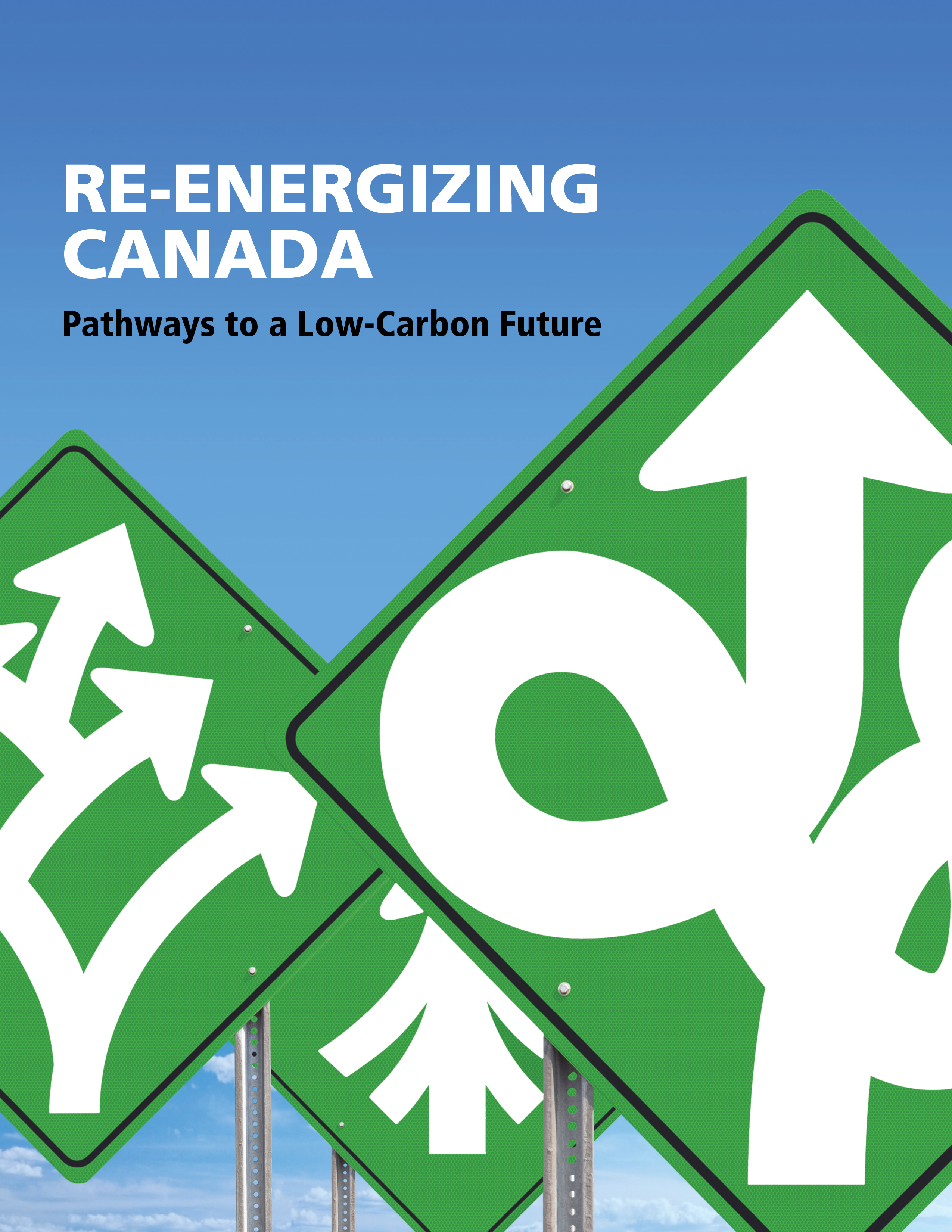
After reviewing hundreds of articles and reports, and analysing much data, we are convinced more than ever that Canada has an opportunity to drive innovation and deliver benefits now and into the future by tapping our vast renewable energy potential and know-how to make the transition away from fossil-fuel-based energy systems.
View key documents used to build the report
Steps Proposed
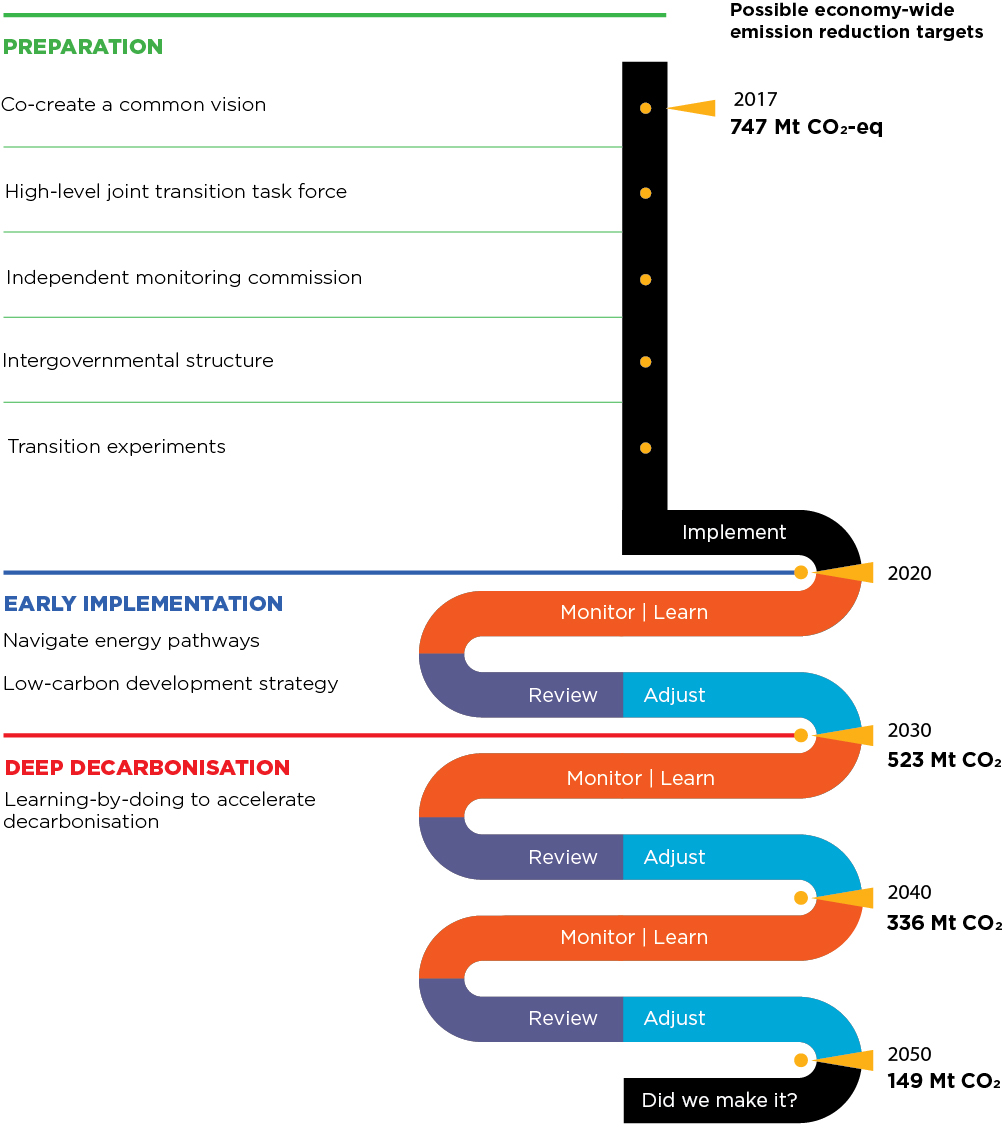
Our Scholars
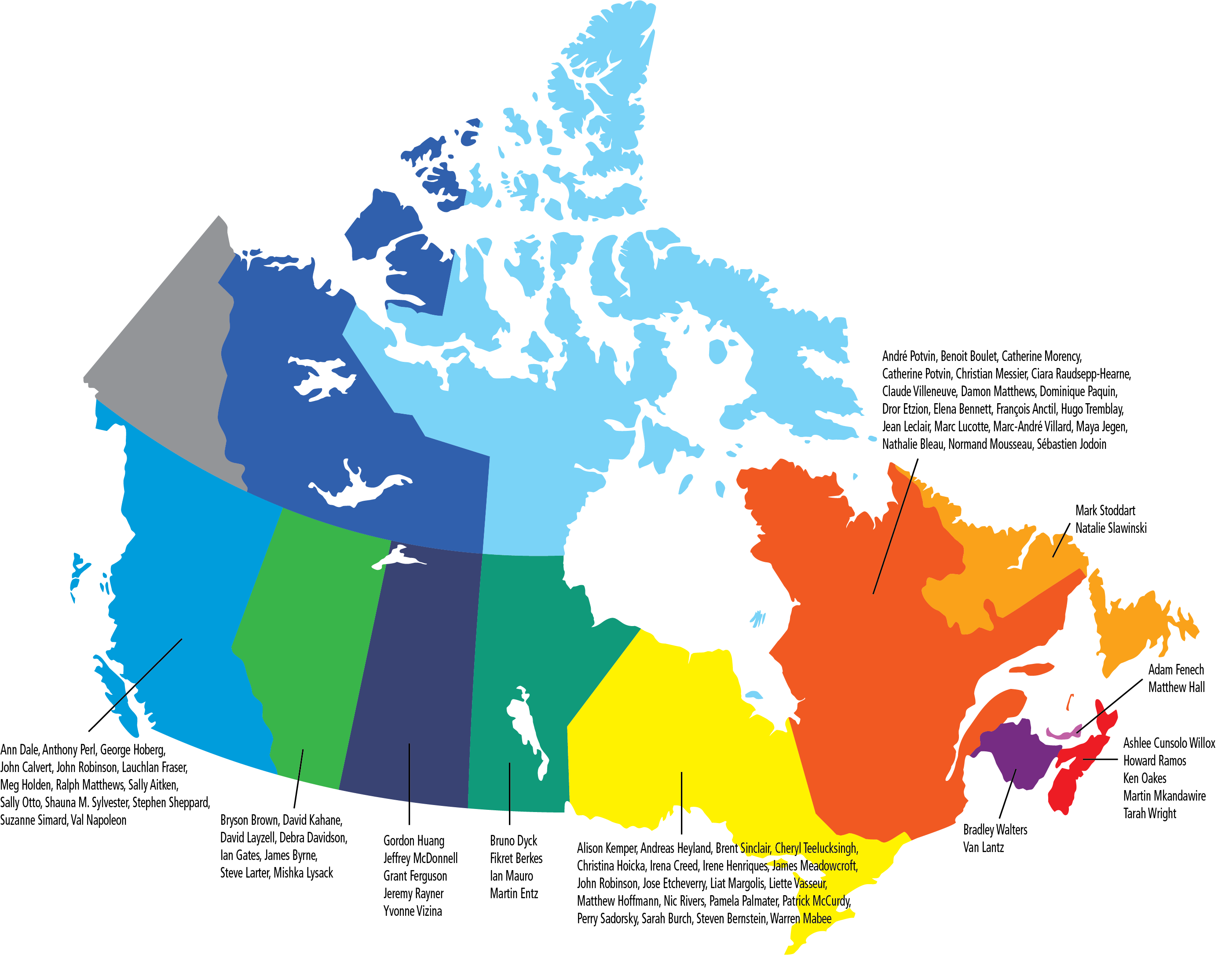
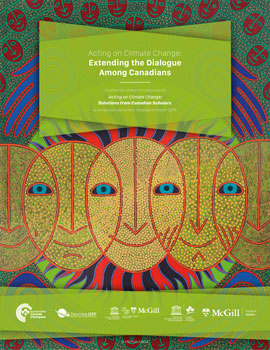
Acknowledging that the policies and actions we proposed in Acting on Climate Change: Solutions from Canadian Scholars are limited to our fields of expertise, we circulated our position paper to a spectrum of First Nations, business associations, non-governmental organizations, labour groups, institutions, organizations and private citizens, to expand the discussion.
The collection of texts, Acting on Climate Change: Extending the Dialogue Among Canadians, presents contributions stemming from these interactions. We invited some contributions, while others were offered to us. Sustainable Canada Dialogues and its partners did not lead or endorse the contributions; content, images and artwork belong to the respective authors and organizations. Together, the contributions enrich the scope of possible solutions and show that Canada is brimming with ideas, possibilities and the will to act.
Couldn't make it to the Toronto launch? Watch panel highlights here.
![]() Download the full document (16 Mb)
Download the full document (16 Mb)
Download individual texts below:
| Section | Title | Author(s) | Organization |
| Indigenous Perspectives | Decolonizing the transition towards a sustainable Canada | Catherine Béland, Michael Ross | First Nations Of Quebec And Labrador Sustainable Development Institute (FNQLSDI) |
| Resonance | Judith DesBrisay | - | |
| Business and Investment | Investing to Facilitate Transition to a Low-carbon Society | François Meloche | - |
| Linking the Roadmap to the UNGC Environmental Principles | Global Compact Network Canada Environment working group | Global Compact Network Canada Environment working group | |
| Climate Investment, Low-Carbon Innovation and Green Industrial Policy | Scott Vaughan | International Institute for Sustainable Development | |
| Canadian Climate Change Policy | A comprehensive look at Canada’s greenhouse gas emissions: Which actions for which reduction targets? | Nathalie Berthélemy | - |
| Building on the Best - Keeping Canada's climate promise | Ian Bruce, Ryan Kadowaki | David Suzuki Foundation | |
| Some Reflections on Climate Change Response Policy | Ralph Torrie | Torrie Smith Associates | |
| Employment and Labour | The Role of Workers in the Transition to a Low-carbon Economy | Erik Bouchard-Boulianne | Centrale des syndicats du Québec |
| Protect the Environment by Doing More Work, Not Less | Lana Payne, Jim Stanford | Unifor | |
| Local Implementation Through Partnerships | At the Crossroads | Philippe Bourke, Cedric Chaperon | Regroupement national des conseils régionaux de l’environnement (RNCREQ) |
| Local Climate Change Knowledge – Solutions for Adaptation and Education in the Fundy Biosphere Reserve | Megan de Graaf | Fundy Biosphere Reserve | |
| Building on Expertise and Innovation by Supporting Businesses and Municipalities | Caroline Sanchez Valero | Réseau environnement | |
| Reinventing Cities | Local Low-Carbon Agenda for National Prosperity | Alex Boston | Trottier Family Foundation, the David Suzuki Foundation and the Canadian Academy of Engineering |
| Transitioning Cities to 100% Renewable Energy | Michael Small, Claire Havens | Renewable Cities | |
| Renewable Energy Challenges | Distributed Generation Micro-Grid Systems: Advancing Renewable Energy Adoption and the Evolution of Our Electrical Grid | Adam Day, Sean Fleming | Solar Global Solutions |
| Hydropower: energy production par excellence in Canada, but not quite green | Marc Lucotte, Mathieu Canton | Université du Québec à Montréal | |
| Transitioning to a renewable energy economy that respects nature and supports community well-being | David Miller, Susan Evans and Farid Sharifi | World Wildlife Fund - Canada | |
| Towards a sustainable low-carbon electric system: Challenges and opportunities | Philip Raphals, Rick Hendriks | Centre Helios | |
| Science-Based Operationalization | Operationalizing the key policy orientations of Acting on Climate Change: Solutions from Canadian Scholars | Mohamed Benhaddadi et al. | Centre interdisciplinaire de recherche en opérationnalisation du développement durable (CIRODD) |
| On the role of Canada's scientists in transitioning to a low-carbon future | W. R. Peltier et al. | Evidence for Democracy | |
| Social Acceptability: What do people want? | Imagining Canada: An exploration of desired futures from a country-wide visioning approach. | Natalie Richards, Mark Stoddart, Ashlee Cunsolo Willox, Catherine Potvin and the SCD visioning team | McGill University; Memorial University; Cape Breton University, et al. |
| Feed the social animal: engaging Canadians in climate change mitigation and adaptation | Liette Vasseur; Gary Pickering | Brock University | |
| Social Justice Considerations | Council of Canadians comments: White paper on climate change actions in Canada | Andrea Harden-Donahue | Council of Canadians |
| Envisioning a good green life in BC: Lessons from the Climate Justice Project | Marc Lee | - | |
| Youth | Building Political Will for a Low-Carbon, High Prosperity Canada | Paul Kershaw | Generation Squeeze |
| The Role of Education in the Transition to a Low-carbon Economy | Jean Robitaille | Centrale des syndicats du Québec | |
| Perspectives from Youth and Health | Shazeen Suleman | Canadian Commission for UNESCO Youth Advisory Group | |
| Call to Action | Corine Cadoret, Noah Picard Simon and 66 youth from the 2015 Students On Ice Arctic Expedition | Students On Ice |